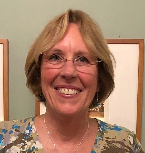
Announcements
- Save the date for our next Symposium – Thursday, November 7th, 2024
- Past Symposia materials can be found under the Past Symposia dropdown above.
8th Annual Symposium for Research Administrators
Wednesday, November 8th, 2023 - Union South
Page Updated: June 24, 2024
7:45 - 8:30 am
- Registration
8:30 - 8:45 am
-
Welcome Remarks
- Presented By
-

Cynthia Czajkowski
Vice Chancellor for Research and Graduate Education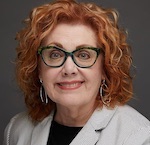
Kim Moreland
Associate Vice Chancellor for Research,
Office of Research and Sponsored Programs
Melanie Hebl
Education Coordinator, Office of Research and Sponsored Programs
8:45 - 9:15 am
-
Keynote Address
- Presented By
-
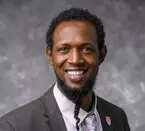
Chris Walker
Director of the Division of the Arts at the University of Wisconsin–MadisonChris Walker is the Director of the Division of the Arts at the University of Wisconsin–Madison, Professor in the Dance Department and founding artistic director of the First Wave Hip Hop and Urban Arts Program at UW–Madison. Walker is a multi-hyphenate contemporary dance and performance artist from Jamaica whose creative research reengages the technology at the core of the traditional and urban ritual practices across the African diaspora. His research intersects dance choreography for the concert stage, movement as dramaturgy for theatre as well as devised movement collaborations with visual and performance artists for museum, alternate spaces, and video/film.
9:15 - 9:30 am
- Break
Concurrent Sessions 9:30 - 10:30 am
-
Research Administration in a World of “It Depends”
Marquee Theatre (2nd Floor)
Slides
- Description
- Sponsored research administration and compliance can be challenging for departmental administrators in a world where questions are frequently answered with “It Depends…” The focus of this session is to provide departmental research administrators with best practices for managing compliance, assessing compliance from proposal to closeout, documenting roles, and responsibilities, and establishing internal controls for management of sponsored projects.
- Presented By
-
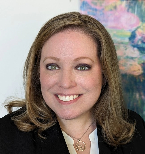
Calleen Roper
MPA, CRA, Associate Director for Research,
Department of MedicineCalleen joined the Department of Medicine in January 2021 as the Associate Director for Research. She oversees DOM’s Office of Research Services, which comprises pre-award, post-award, clinical trials, compliance, and research analytics. She works closely with faculty and project managers within DOM's 11 divisions and multiple affiliated research centers. Calleen is a Certified Research Administrator and has a Master of Public Administration from Florida State University.
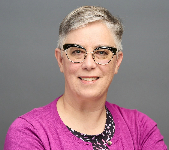
Sandy Fowler
Assistant Dean of Research, Research Division,
College of Agricultural and Life SciencesSandy has been with the University since 1997 and her career with research administration started in November of 1999 when she was a Program Assistant with the Department of Forest Ecology and Management. She was managing grants and did not know it. Her time in the department prepared her for a move in 2006 to the College of Agricultural and Life Sciences (CALS) Research Division where she served as the lone post-award accountant until 2010. Due to college administrative restructuring, her position was moved to the CALS Business Services Office. It was a phenomenal move because it allowed Sandy to teach others and share her knowledge about grants and why it was important to know federal and sponsor terms and conditions when applying costs to sponsored funding. Nine years later Sandy became the Director of Business Services and served in the role for a little over 4 years. In late March Sandy returned to the CALS Research Division as Assistant Dean and is excited to be 100% research administration again.
-
F&A Basics at the University of Wisconsin-Madison
Industry (3rd Floor)
Slides
- Description
-
This presentation will cover the basics of what Facilities & Administrative (F&A) costs are, how a rate is determined, proposal budgets calculations, and how F&A recovery funds are used by the University.
- Presented By
-
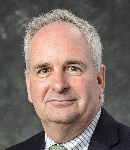
David Murphy
Associate Vice Chancellor for Finance,
Office of Finance & AdministrationDavid is responsible for financial management, planning and stewardship of UW–Madison and its $3 billion operating budget. He oversees a wide range of campus units, including the Budget Office, Business Services and Auxiliary Operations Analysis. He also serves as an advisor to the Vice Chancellor for Finance & Administration and to the Chancellor on budget and other finance matters.

Petra Schroeder
Associate Vice Chancellor for Finance & Administration,
Office of ResearchPetra serves as chief financial officer, oversees facilities management, and supervises accounting, human resource management, research administration and information technology services for the Office of Research and Graduate Education.
-
Eyes on the Prize: Effective Teamwork for Successful Research Administration
Landmark (3rd Floor)
Slides
- Description
- Research administration with a multi-faceted process with involvement from multiple offices across campus. From the PI and the department to the dean’s office and RSP, and across the life cycle, dozens of individuals can be involved in any one grant. This complex process is most successful when we see each other as part of a team working toward a common goal, rather than focusing only on our own role or office. Breaking through the silos to work collaboratively makes us all winners! In this session we will discuss the many roles in our research administration process and strategies for improving communications and relationships across the life cycle.
- Presented By
-
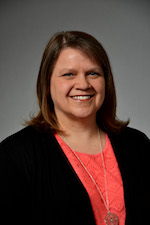
Kristin Harmon
Intellectual Property Disclosure Manager,
Office of the Vice Chancellor for ResearchKristin works as an Intellectual Property (IP) Disclosure Manager in the Office of the Vice Chancellor for Research (OVCR), working with University of Wisconsin faculty and staff, schools and colleges, and the Wisconsin Alumni Research Foundation (WARF) to evaluate intellectual property developed at UW for university obligations based on agreements with outside entities. Kristin began her career at UW-Madison in 2004 as a Grants & Contracts Specialist at RSP. She spent eight years as grant manager at the Wisconsin National Primate Research Center and the Wisconsin Institute for Discovery, taking responsibility for all aspects of pre-award and non-financial post-award research administration. She also works closely with OVCR leadership and Legal Affairs to interpret intellectual property regulations, and design and implement compliance processes. Kristin has recently completed a term as Chair of Region IV of the National Council of University Research Administrators. She is a strong believer in communication and collaboration and is actively involved in outreach and mentorship activities. Kristin holds a B.A. in History and Russian Studies from Colorado College and a Master of Arts in Russian History from Indiana University.
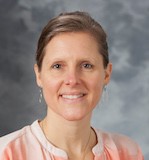
Christy Schulz
Research Administration Director,
School of Medicine and Public HealthChristy is responsible for planning, organizing, and directing the day-to-day operations and strategic direction of Research Administration at SMPH. Christy oversees research and sponsored projects administration activities on behalf of SMPH. She coordinates monthly meetings for SMPH Research Administrators Network which includes 17 Clinical Departments, 10 Basic Science Departments, and 23 Institutes and Centers.
-
Is it or Isn’t it Participant Support?
Agriculture (3rd Floor)
- Description
- Let’s discuss the confusing world of Participant Support Costs (PSC) and the challenges and opportunities we see.
- Topics we may cover include:
-
- Participant or not?
- Differentiating Participant Support Costs from other costs.
- Options for paying participants travel costs.
- What should and should not be included in PSC budgets and expenses?
- Where supplies should be budgeted?
Attendees will hear from peers across campus at all levels, on their challenges and successes with Participant Support Costs. Attendees will identify opportunities for changes they can effect to support better adherence to PSC terms and conditions. Attendees will gain a better understanding of Participant Support Costs and their complexities.
- Handouts:
- Presented By
-
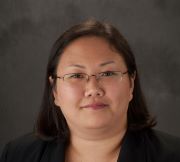
Jenny N. Yuan
Finance and Grants Administration Manager,
Center for Health Disparities ResearchJenny is the Finance and Grants Administration Manager in SMPH’s Center for Health Disparities Research (CHDR), where she oversees the center’s finances and grants. Prior to joining CHDR in August 2023, Jenny was a post-award accountant for over 4.5 years on the NSF/DOE team in RSP and worked on NSF and DoE awards. Jenny has been a UW-Madison employee for over 17 years and has worked on grants administration and finances in divisional and department offices (at the Wisconsin School of Business and the Department of Soil Sciences, respectively). Jenny’s experience within research administration has primarily been in post-award. While working at the University of Wisconsin-Madison, she completed her B.S. in Business Administration in 2012 from Upper Iowa University and her MBA, with an emphasis in Marketing, from UW-Madison in 2017.

Jennifer Rodis
Policy and Planning Analyst,
Office of Research and Sponsored Programs
Jennifer is a Policy & Planning Analyst in UW-Madison’s Office of Research and Sponsored Programs. She works on policy analysis, interpretation, development, and implementation related to research administration. She has been active with NCURA, FDP, and COGR, and currently serves on the FDP Expanded Clearinghouse Subcommittee and the COGR Contracts & Grants Administration Committee.
-
The 3 Ws of Organizational Culture. What is it? Who Defines it? Why is it so hard to change?
Traditions (2nd Floor)
Slides
- Description
- Organizational culture is one of those terms we hear a lot about, but what does it really mean? Is it the same as organizational climate? Do you sometimes feel when your colleagues or teammates describe your work environment it sounds like a completely different experience from your own? In this session we will introduce you to the language and frameworks for understanding what is meant by the culture of an organization, why it can be hard to identify, and the difference between organizational climate and culture. We will include scenarios and interactive discussions on types of organizational cultures and what steps you can take to both identify and influence the culture within your own organization or team.
- Learning Objectives
-
- Identify terms and tools to describe organizational culture.
- Understand why individuals may experience organizational culture in such different ways.
- Recognize the relationship between organizational climate and culture.
- Presented By
-
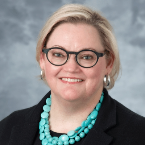
Kate Kingery
Director of Consulting for the Office of Strategic ConsultingKate leads strategy and operations for the delivery of consulting services to the UW-Madison community. The Office of Strategic Consulting provides tailored services to enhance organizational effectiveness and build institutional capacity. Kate has more than 25 years of experience leading and facilitating high-impact, multi-stakeholder initiatives across government, philanthropy, and higher education. She previously spent five years in a program leadership role with the School of Medicine and Public Health, and she spent more than a decade leading her own social impact consulting practice in Washington, DC working with mission-driven executive leaders at the federal and state levels. Kate holds a master of public affairs from the Humphrey School of Public Affairs at the University of Minnesota and a bachelor’s degree in political science from UW–Madison.
-
Unfinished Business – Onboarding Strategies for New Leaders and Teams
Northwoods A (3rd Floor)
- Description
-
Are you entering a new role on campus or joining a new department or team? Do you need an onboarding strategy to help build your team? Did you inherit unfinished business or other issues? Then, this session is for you! This interactive session will present strategies and techniques to effectively onboard new staff and build your team, along with ways you can effectively manage workloads and projects, both new and old tasks. The session will consist of a blend of techniques and ideas to use for onboarding and team building along with strategies and tools to help manage workloads and projects effectively. Even though it will be a presentation, expect plenty of opportunity for discussion and questions to make it interactive and the most beneficial to all who may attend.
- Presented By
-
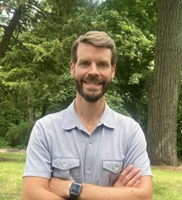
Aaron Crandall
Director of the Social Science Research Services
College of Letters and ScienceAaron Crandall is the Director of the Social Science Research Services in the College of Letters and Science. He took over this role in January 2023 and inherited an almost entirely new team most starting around the same time. Aaron has twenty years of research administration experience, at the central, divisional, and departmental levels, all at UW-Madison, starting in 2003. He has focused mostly on pre-award throughout his career and has full lifecycle experience, specifically working with NIH and DHHS sponsors.
-
Export Control and Sanction Updates and Trends
Northwoods B (3rd Floor)
- Description
- U.S. Export Control and Sanctions regulations are constantly changing because of national security, foreign policy, and economic considerations. Our session will cover the basics of export control and the major regulatory themes that affect UW-Madison including:
-
- International Travel/International Remote Work Agreements
- Informal agreements restricting foreign persons from participating in research projects and creating publication restrictions that may affect open research.
- Foreign/Malign Government Talent Recruitment Programs
- Russian and other country sanctions
- National Security Presidential Memorandum-33 – What is it
- Research Security Program
- Presented By
-
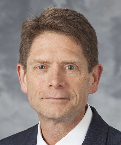
John Jay Miller
Interim Director of the Research Security ProgramJohn started at UW-Madison in 2018 working in the Office of Strategic Consulting before moving to the Office of the Vice Chancellor for Research in 2022. John is responsible for the organization, management and supervision of the Research Security Program and Export Controls. John has 12 years of experience in higher education and research compliance and prior to working in higher education practiced law for 20 years.
10:30 - 10:45 am
- Break
Concurrent Sessions 10:45 - 11:45 am
-
RAMP (Funding Proposals and Awards) Tips, Tricks and Discussion
Marquee Theatre (2nd Floor)
-
Slides
- Description
UW-Madison started using RAMP (the Huron grants management software) on June 26. In this session, pre- and post-award Research Administrators from SMPH, Engineering and L&S will walk through some lessons learned in the field. In this brief session, see a live demo, get tips and tricks; bring your questions!
- Presented By
-
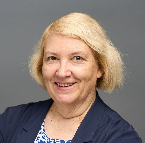
Sylvia Kmiec
CRA, Senior Research Administrator, Physics DepartmentSylvia has been a pre- and post-award research administrator at UW-Madison for the past 9 years, 4 years at the Institute for Research on Poverty and 5 in Physics. She became a Certified Research Administrator (CRA) in 2019. She was a mentee and a mentor in the RED Peer Mentoring Program, 2017-2021. She served on the Symposium Planning Committee 2020-2022 and the ATP Research Administration Core Project Team 2021-2023. She is a member of NCURA, SRAI, and AGA.

Erin Goeldner
Divisional Research Administrator
College of EngineeringErin has worked in Research Administration at UW Madison for the past 8 years, first as a life cycle department Research Administrator and now at the division level for the College of Engineering. Together with the COE Research Services Team, Erin helps department research administrators and faculty submit nearly 500 proposals per year, assists with post award support, and actively trains newcomers to the field research administration. She previously worked abroad in development and financial/operations management. When not reviewing proposals or training, Erin enjoys running (slowly) and exploring the world with her husband and two children.

Courtney Griese
Research Administrator, Department of Cell and Regenerative Biology
School of Medicine and Public HealthCourtney joined the Department of Cell and Regenerative Biology in September 2022. Her responsibilities include pre- and post-award. She started her career at a startup in Research Park managing the company’s grants and day to day operations. Courtney has a B.S. in Microbiology from UW-Madison and is currently working on her MBA through the UW Consortium.
-
Budgets and Budget Justifications – Understanding Both and How they affect Post-Award
Industry (3rd Floor)
Slides
- Description
- A budget narrative is a crucial component of grant proposal. A well-prepared budget narrative can significantly increase the chances of securing grant funding for a project. In this presentation, learn how to develop a detailed budget narrative that explains, justify, and contextualize the financial aspects of a project; and that enhances transparency, demonstrates alignment with project goals and compliance with funder requirements, instills confidence in grantors, and supports post-award implementation and understanding.
- Learning Objectives
-
- Understand the Purpose of a Budget Narrative:
- Explain the role and importance of a budget narrative in a grant proposal and its significance in communicating financial details to grantors.
- Comprehend Funder Requirements:
- Understand how to review and interpret grant guidelines and funder requirements related to budget narratives.
- Identify Key Components of a Budget Narrative:
- Define the essential elements and sections that make up a comprehensive budget narrative.
- Learn to Translate Budget Line Items:
- Demonstrate the ability to describe and justify each budget line item in plain language, making it understandable to both financial and non-financial audiences.
- Justify Budget Line Items:
- Develop the skill to provide clear and convincing justifications for the expenses included in the grant budget, emphasizing how each item supports the project's objectives throughout each year of the project period. Showcase techniques for making the budget narrative clear, concise, and transparent, facilitating ease of review by grantors, as well as post-award implementation.
- Align Budget with Project Goals and Objectives:
- Show how to ensure that the budget narrative reflects a direct alignment between budgetary items and the specific goals and objectives of the proposed project.
- Utilize Budget Narrative Templates:
- Learn how to use budget narrative templates effectively, adapting them to the specific needs and preferences of different grantors.
- Collaborate on Budget Narrative Development:
- Promote collaboration among team members, post-award staff, and partners to ensure that the budget narrative reflects a collective understanding of financial needs and resources.
- Analyze Effective Budget Narratives:
- Examine examples of successful budget narratives to identify strategies and best practices employed in real-world grant proposals.
- Understand the Purpose of a Budget Narrative:
- Presented By
-

John Varda
Assistant Dean for L&S Research ServicesJohn is an experienced research administrator and long-time campus employee. He worked in the Astronomy department for many years, ending there as the department administrator. After a brief stint as department manager in Computer Sciences, he worked on post-award grants and gifts for the L&S Dean’s office for six years, then spent three years at RSP as the manager of the post-award team. John returned to L&S as Assistant Dean for Research Services for the college in October of 2019. He has been involved with RED since its inception and presents workshops regularly.
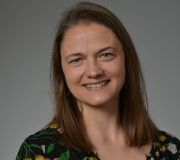
Catherine Shults
Research Administrator,
Department of Mechanical EngineeringCatherine specializes in both pre-and post-award management, and her award portfolio currently includes NSF, DOE, DOD, and various industry partners. She also has broad knowledge of general financial and operational aspects of the department gained in previously held roles.
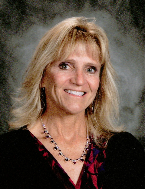
Lori Uttech-Hanson
Clinical Research Center Administrator,
George O’Brien Center for Benign Urology Research in the Department of Urology, School of Medicine and Public HealthShe possesses 30 years of experience in all aspects of the “grants” field (grant writing, grant making, strategic planning, funding research, partnership development, grant management/administration, project directorship, compliance monitoring, program evaluation, etc.). During her career she has worked in both the public and private sectors, with federal and non-federal grants, and with a wide variety of internal and external teams, collaborative partners, and staff representing multiple departments, agencies, institutions, businesses/industries, and more. Her previous role at UW-Madison includes serving as the Director of medRAMP (SMPH Office for Research Administration and Proposal Development) that focuses on helping investigators develop large-scale, complex grants. Before that she was a Statewide Grants Administrator with the WI Department of Workforce Development where she facilitated the grant making and review, scoring, and selection process; managed post-award administration; and supported applicants and grantees with pre- and post-award technical assistance and training opportunities. Prior to that, her experiences as a Project Director on a multi-million dollar grant among a consortium of school districts, as well as the Grants Office Director at a technical college contributed to her skills in administration, communication, and leadership. Finally, she learned the fine arts of grant writing and funding research serving as a Grant Writer and Program Evaluator for a consortium of 40 school districts at CESA 6. She is a Certified Research Administrator and member of NCURA. She earned her B.S. from UW-Madison and possesses a Master’s in Education.
-
Commitments - Making Sense of and Managing Complex Commitments
Landmark (3rd Floor)
Slides
- Description
- What's the difference between effort, commitment, and payroll? What is and is not tracked institutionally, what needs to be reported and why do we need to manage commitments? How does cost share and salary cap fit into commitment tracking? In this session, we'll define these terms, discuss the limitations of our institutional systems for tracking commitments and offer suggestions and considerations for managing commitments, specifically complex situations.
- Presented By
-
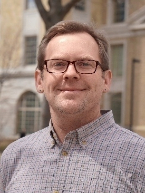
Zach Smith
Research Administrator Supervisor,
Dept of Mechanical EngineeringZach is an experienced Research Administrator Supervisor in the Department of Mechanical Engineering. He specializes in large, multi-faceted proposals and awards, complex cost-sharing and proactive commitment management. His primary interests involve systems thinking and refinement of processes and procedures via novel tool development. He enjoys detail-oriented work and maintaining wholistic award perspectives. He is the previous Chair of the College of Engineering’s Committee Advocating for Staff Interests (CASI), the Co-Chair of UW’s Standing Budget Committee, an Academic Staff Assembly representative, and a mentor with NCURA and UW’s RED mentoring programs.
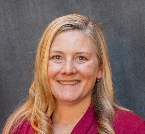
Jenny Dahlberg
Research Administration Director,
School of Veterinary MedicineJenny has over 20 years of NIH training grant (T32) administration experience. She currently oversees research administration within the School of Veterinary Medicine, as well as serves as the primary administrator for all NIH T32s, Ks and F awards within the school. She has provided training grant guidance to both faculty directors and administrators on campus, as well as presented at regional National Council of University Research Administrators (NCURA) meetings on training grant administration. Jenny has assisted faculty with over twenty competitive training grant submissions, starting in 2001 while pursuing her B.S. in Natural Sciences from CALS. She later received her M.S. from the Comparative Biomedical Sciences Graduate Program.
-
Plotting Your Career in Research Administration
Agriculture (3rd Floor)
Slides
- Description
- There are many paths on the road to a successful career in research administration. What can you do to get a leg up, and prepare for future career challenges? In this session, we will discuss the research administration landscape today, and the soft skills, technical skills, and education that can be helpful in advancing.
- Learning Objectives
-
- Understand Soft Skills, Technical Skills, and Education Options for a career in research administration
- Leave with a Written Career Plan Handout
- Presented By
-
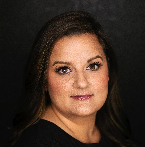
Chelsea Dahmen
Administrative Director,
Space Science and Engineering CenterAs the Administrative Director, Chelsea Dahmen leads purchasing, human resources, property control, accounting, research administration and contracts support at the University of Wisconsin–Madison Space Science and Engineering Center. She provides guidance to more than 40 multi-disciplinary principal investigators in a sponsored research environment that includes government, industry, academic and international partners. Prior to her role as associate director, she served as Department Administrator for the Department of Atmospheric and Oceanic Sciences, worked in research at the School of Veterinary Medicine, and in compliance and regulatory review for the Health Sciences Institutional Review Board and Carbone Cancer Center, all at the UW–Madison. She received a Bachelor of Science degree in Biochemistry from the UW–Madison.

Cecilia Stodd
Research Administrator, Pre-award Services,
Department of ChemistryCecilia has worked at UW-Madison for 28 years, and in Grants Administration since 2007. She started as post-award accountant for Population Health Sciences in SMPH, then switched in 2011 to Pre-award Services for the Department of Chemistry. She is part of a 3-person team to provide grant management services to Chemistry faculty.
-
Test Your Knowledge of Federal Agency Updates
Traditions (2nd Floor)
Slides
- Description
- UW–Madison's federal sponsors provide substantial support for our institution's research enterprise. Our federal sponsors embody the saying, "The only constant is change." Attend this interactive session in which we will cover updates in federal policies and procedures that impact our work as research administrators. Be prepared to test your knowledge of recent (and some not so recent) changes that federal sponsors have made.
- Presented By
-

Brenda Egan
Proposals Team Manager
Office of Research and Sponsored ProgramsBrenda is the manager of the Proposals team in the Office Research and Sponsored Programs. Prior to joining RSP in 2011, Brenda worked as a research administrator at the Waisman Center, the Department of Communication Sciences and Disorders, and in the Dean’s office at the School of Human Ecology.

Jennifer Rodis
Policy and Planning Analyst
Office of Research and Sponsored ProgramsJennifer is a Policy & Planning Analyst in UW-Madison’s Office of Research and Sponsored Programs. She works on policy analysis, interpretation, development, and implementation related to research administration. She has been active with NCURA, FDP, and COGR, and currently serves on the FDP Expanded Clearinghouse Subcommittee and the COGR Contracts & Grants Administration Committee.
-
Time Management: Keeping It Simple
Northwoods A (3rd Floor)
- Description
- This session will discuss time management and organizational topics. It will provide learners with strategies to better manage their time and become more organized – in their professional and personal lives. Learners will engage in individual and small group exercises to explore methods for implementing time management and organizational strategies. Before leaving the session, learners will develop an action plan to implement one time management strategy and one organizational strategy learned during the session, either from the presenters or from their colleagues.
- Presented By
-
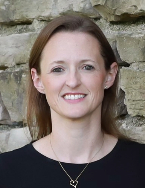
Jessica Karls-Ruplinger
JD, Director of Research Operations,
Department of SurgeryJessica joined the Department of Surgery in July 2023 as Director of Research Operations. She oversees the research administration for the department, including grant management, statistical analysis, clinical trials, and basic science research. Prior to joining the Department of Surgery, Jessica was Chief of Staff to the Chief Human Resources Officer for UW-Madison. She has a law degree from Marquette University Law School and a B.A. in Political Science from UW-Madison.

Calleen Roper
MPA, CRA, Associate Director for Research,
Department of MedicineCalleen joined the Department of Medicine in January 2021 as the Associate Director for Research. She oversees DOM’s Office of Research Services, which comprises pre-award, post-award, clinical trials, compliance, and research analytics. She works closely with faculty and project managers within DOM's
-
Onboarding New PIs – Best Practices for Depts & Divisions
Northwoods B (3rd Floor)
Slides
- Description
- This is a high-level overview of a UW research administration onboarding process for new PI's, regardless of whether they are an assistant, associate, or full-tenured professor. Join us for a “tell-all” on best practices/tips, system access, required UW compliance trainings & tools and checklists we’ve developed, that research administrators may find useful while onboarding their own new faculty. Also, we encourage you to bring your own to share.
- Presented By
-
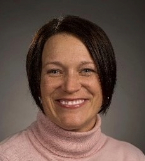
Chrystin Schultz
Research Administrator,
Biomedical EngineeringChrystin provides assistance to faculty in both pre and post award as a Research Administrator for the Biomedical Engineering Department, within the College of Engineering. She began her journey into research administration in 2019 as a post award accountant. Her role grew into full research administrative duties in 2021, focusing primarily on NIH sponsored projects.
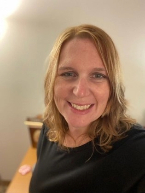
Tammy Kuhn Martin
Assistant Dean for Research Administration,
College of EngineeringTammy oversees the Research Service Office, which handles preaward, post award and compliance. She has been in CoE for the last 18 years. Tammy got her start in Research Administration in 2001 when she took a student hourly position as an Accountant Intern at Research & Sponsored Programs. She has a wealth of experience and expertise across all aspects of research administration spanning full-life-cycle grants, contract management and research compliance. She serves on a number of campus committees, Red Mentor and RED facilitator. Tammy is a member of the National Council of University Research Administrators (NCURA) and has presented at several Preaward Research Administrator conferences, regional, and national meetings.
11:45 am - 12:45 pm
- Lunch
12:45 - 1:45 pm
-
PI Talk
Marquee Theatre (2nd Floor)
- Description
- Earth Partnership’s Indigenous Arts and Sciences is a Tribal university collaboration with four Native Nations in Wisconsin (Bad River, Red Cliff, Lac Courte Oreilles and Ho-Chunk Nations) and two tribal colleges (Lac Courte Oreilles Ojibwe University and College of Menominee Nation) implementing community-based and Tribally-driven participatory research and Indigenous science education. Our shared work has developed research capacity in these communities and directly led to increased equity in the UW-Madison IRB process. Tribal partners are Co-PI’s on all research and outreach projects, and intellectual and educational sovereignty is affirmed in all stages of the shared work. The presenters will inform about their process developing Tribal university collaborations transforming education systems and research practices.
- Presented By
-
Cheryl Bauer-Armstrong
Director of the Earth Partnership program,
Department of Planning and Landscape ArchitectureCheryl Bauer-Armstrong is the Director of the Earth Partnership program in the Department of Planning and Landscape Architecture. Under her leadership, she has spearheaded the ecological restoration education program from its local focus in the 1990s to a community-engagement model in over 20 states, Puerto Rico, Ecuador, and Mexico and actively partners with six of the twelve Native Nations in Wisconsin implementing culturally relevant youth education, community engagement, and educator professional development. She designs and co-teaches undergraduate courses centered on the Earth Partnership model of community-based restoration informed by inclusion, stewardship action, and resilience.
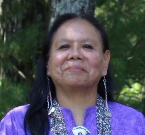
Michelle Cloud
Culture & Community Education Division Manager,
Nation’s Education DepartmentMichelle Cloud is an enrolled member of the Ho-Chunk Nation and serves as the Culture & Community Education Division Manager in the Nation’s Education Department for the past 9 years. Michelle is the Nation’s Principal Investigator for the UW-Madison Indigenous Arts & Sciences program. She is a nationally trained Seeking Educational Equity & Diversity (S.E.E.D.) facilitator and has led educator and community based social justice groups for the past decade in several school districts and communities in what is now known as Wisconsin. Michelle holds three degrees, but she is prouder of the lifelong cultural knowledge she has learned from her elders and sacred knowledge keepers.
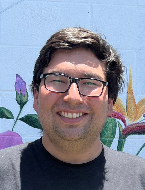
Jared Blanche
Director of the Red Cliff Education Department and the LibraryJared Blanche is an enrolled member of Red Cliff Band of Lake Superior Chippewa. He is Director of the Red Cliff Education Department and the Library. He is knowledgeable in educational resources as a licensed middle school teacher, supports the education of Red Cliff members on and off reservation, and leads school-community relations with the Bayfield school district. He is Principal Investigator on NSF ITEST and GEOPAths and NOAA B-WET Indigenous Arts & Sciences projects.
1:45 pm - 2:00 pm
- Break
Concurrent Sessions 2:00 - 3:00 pm
-
Cost Share – Past, Present, and Future
Marquee Theatre (2nd Floor)
Slides
- Description
- Come join us to learn more about how entering cost share has changed from WISPER to RAMP. We’ll go over what information is needed in RAMP. Plus, we’ll give a sneak peek of how cost share may look and work in WorkDay.
- Learning Objectives
-
- Refresher on voluntary vs mandatory cost share.
- Understand what cost share information is needed in RAMP at proposal.
- Understand what cost share information is needed in RAMP at award set up.
- Understand how cost share will be set up and tracked in WorkDay.
- Preview what cost share transactions will look like in WorkDay.
- Introduce payroll cost share conversion activities.
- Presented By
-
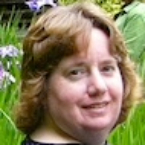
Kris DeArmond
Post Award Accountant,
Office of Research and Sponsored ProgramsKris is a Post-Award Accountant on the Miscellaneous Federal Post Award team in Research & Sponsored Programs. She has been a part of the team since 2009, with a brief period on the DHHS/NIH team as well as time spent assisting the NSF/DOE team. Throw in a few Non-Federal awards and she has worked with a wide variety of sponsored projects. To make things more exciting, in 2012 she thought it would be interesting to learn more about cost share, so she joined the RSP Cost Share Working Group. Later, she took on the role of Cost Share Lead and continues that role today in conjunction with Post Award Accountant duties.

Bridget Montour
Sponsored Billing & Accounts Receivable Design Lead,
Administrative Transformation Project (ATP)Bridget joined the ATP Research Admin team in April 2022 to lead the Workday Sponsored Billing and Accounts Receivable design. Prior to joining ATP, she worked in RSP since 2009 as a Post Award Accountant, PeopleSoft Business Analyst, NSF Data Analytics Audit Manager, and Revenue Management Team supervisor. Bridget served as a Grants, Contracts and Billing Product Advisory Group member on the Higher Education User Group (HEUG) for three years. She has had the opportunity to present many Sponsored Billing and Receivables sessions at HUEG Alliance conferences and NCURA National and Regional meetings over the past decade.
-
RAMP Agreements Module – Q&A Session
Industry (3rd Floor)
- Description
-
The RAMP Agreements Module has been active for several months and we’ve all experienced the various ways that RAMP operates. We have all also likely run into our fair share of roadblocks. This session is intended to be a discussion for attendees to ask “how to” questions related to the RAMP Agreements Module so we can learn as a group how to best use RAMP more effectively for contracts and agreements.
Attendees should either (a) submit questions via Qualtrics HERE ahead of the session; or (b) come armed with questions for discussion.
Note that this session is not intended to be used for a discussion on “this is wrong with RAMP…” or “why won’t RAMP do thus…” but rather, this is an opportunity to talk through how to best complete various tasks in the Agreement Module moving forward.
- Learning Objectives
- Presented By
-
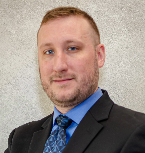
Bob Gratzl
Assistant Director of Contracts at RSPHe joined the University of Wisconsin-Madison in 2011 as a Grant and Contract Specialist for the RSP Contracts Team. He and his staff on the RSP Contracts Team negotiate and execute agreements and subagreements for sponsored research with a variety of sponsors, including federal, non-profit, for-profit and academic partners. Bob has presented at both regional and national NCURA meetings on a wide range of research topics. robert.gratzl@rsp.wisc.edu

Tammy Kuhn Martin
Assistant Dean for Research Administration,
College of EngineeringTammy oversees the Research Service Office, which handles preaward, post award and compliance. She has been in CoE for the last 18 years. Tammy got her start in Research Administration in 2001 when she took a student hourly position as an Accountant Intern at Research & Sponsored Programs. She has a wealth of experience and expertise across all aspects of research administration spanning full-life-cycle grants, contract management and research compliance. She serves on a number of campus committees, Red Mentor and RED facilitator. Tammy is a member of the National Council of University Research Administrators (NCURA) and has presented at several Preaward Research Administrator conferences, regional, and national meetings.
-
Other Duties as Assigned - Project Management for Non-project managers
Landmark (3rd Floor)
Slides
- Description
- In addition to your regular workload, you are often called upon to lead projects which can grow to eclipse the time and resources available. This session will share some tools, techniques, and processes that can help you and your team navigate the chaos and more efficiently create successful outcomes.
- Presented By
-

Scott Kohl
Associate Director,
Strategic InitiativesScott first joined the Office of Strategic Consulting as a senior project manager and now serves as the associate director of strategic initiatives. He has over 25 years of experience across the fields of software development, IT, gamification, higher education, business development, and entrepreneurship. Scott is an adjunct instructor and entrepreneur in residence at Madison College. He is a published author of four books on organizational development, leadership, and motivation. As a certified project manager, Scott has led teams at the Weather Channel, Activision Blizzard, Wisconsin Department of Natural Resources, Madison College, American Family Insurance, and several startups. Scott holds a bachelor’s degree in economics and an MBA from UW–Madison.
-
“Stop, Collaborate, and Listen”: Becoming the PIs’ Ally (Discussion)
Agriculture (3rd Floor)
- Description
- One of the key players in research administration isn’t a research administrator at all – it’s the principal investigator. As research administrators, we balance a customer service role with the practicalities of sponsor requirements, institutional policies, and federal regulations. Building strong relationships with PIs make the entire process for positive and productive. Join us to share and discuss successful strategies (and some that may not have been so successful) to ensure faculty see you as an ally rather than an adversary. Bring your thorny PI relationship issues, as well as your best tips for building rapport with PIs.
- Presented By
-

Kristin Harmon
Intellectual Property Disclosure Manager,
Office of the Vice Chancellor for ResearchKristin works as an Intellectual Property (IP) Disclosure Manager in the Office of the Vice Chancellor for Research (OVCR), working with University of Wisconsin faculty and staff, schools and colleges, and the Wisconsin Alumni Research Foundation (WARF) to evaluate intellectual property developed at UW for university obligations based on agreements with outside entities. Kristin began her career at UW-Madison in 2004 as a Grants & Contracts Specialist at RSP. She spent eight years as grant manager at the Wisconsin National Primate Research Center and the Wisconsin Institute for Discovery, taking responsibility for all aspects of pre-award and non-financial post-award research administration. She also works closely with OVCR leadership and Legal Affairs to interpret intellectual property regulations, and design and implement compliance processes. Kristin has recently completed a term as Chair of Region IV of the National Council of University Research Administrators. She is a strong believer in communication and collaboration and is actively involved in outreach and mentorship activities. Kristin holds a B.A. in History and Russian Studies from Colorado College and a Master of Arts in Russian History from Indiana University.

Christy Schulz
Research Administration Director,
School of Medicine and Public HealthChristy is responsible for planning, organizing, and directing the day-to-day operations and strategic direction of Research Administration at SMPH. Christy oversees research and sponsored projects administration activities on behalf of SMPH. She coordinates monthly meetings for SMPH Research Administrators Network which includes 17 Clinical Departments, 10 Basic Science Departments, and 23 Institutes and Centers.
-
Understanding ARPA-E/DARPA Awards: A Post-Award Perspective
Traditions (2nd Floor)
Slides
- Description
- The Advanced Research Projects Agencies for the Department of Energy (ARPA-E) and the Department of Defense (DARPA) are invested in supporting high-impact breakthrough technologies in national security and the energy sector. While ARPA-E and DARPA provide important sources of funding for some of the cutting-edge research that is taking place at the University of Wisconsin-Madison, the management of these awards can often be challenging. In this session, we will explore unique award features, review some of their challenging administrative components, and discuss tools and strategies that can help facilitate more effective management of ARPA-E and DARPA awards.
- Presented By
-
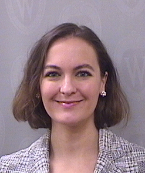
Chelsea Propst
Post-Award Accountant,
Office of Research and Sponsored ProgramsChelsie joined the NSF/DOE team in the Office of Research and Sponsored Programs in Spring 2022. In her role as a post-award accountant, she oversees and manages many of UW-Madison’s awards from the Department of Energy (DOE).

Sylvia Kmiec
CRA, Senior Research Administrator,
Physics DepartmentSylvia has been a pre- and post-award research administrator at UW-Madison for the past 9 years, 4 years at the Institute for Research on Poverty and 5 in Physics. She became a Certified Research Administrator (CRA) in 2019. She was a mentee and a mentor in the RED Peer Mentoring Program, 2017-2021. She served on the Symposium Planning Committee 2020-2022 and the ATP Research Administration Core Project Team 2021-2023. She is a member of NCURA, SRAI, and AGA.
-
DEI In Action: How Research Administrators Can Enact Change, Every Day
Northwoods A (3rd Floor)
- Description
- You've attended DEI trainings, you understand the basic definitions--but what can YOU do to enact change in your role as a research administrator? This session will focus on definitions and concepts of JDEIA (Justice, Diversity, Equity, Inclusion, Accessibility), current best practices, and actual actions and tips that research administrators, specifically, can take in common situations we encounter to be catalysts for change in our industry and in the world. Attendees will leave understanding the core concepts of JDEIA practices, and will begin to develop a toolkit of responses and best practices for potential situations for allyship.
- Presented By
-
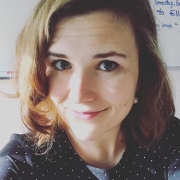
Lauren Gee
Research Administration Manager for the SMPH Department of MedicineLauren’s team manages proposal development and submission and non-financial post-award management for 11 divisions. Before her current position, she was a pre- and post-award research administrator with UW’s Department of Engineering Physics, and a facilitator on high-risk/high-reward multidisciplinary projects at both Colorado State and Duke University. Lauren is passionate about crafting the “story” of the PI’s project through the entire proposal package, assisting interdisciplinary teams in crafting engaging, winning proposals. She has a special interest in the science of team science and justice, diversity, equity, and inclusion work in teamed research.

Jenny N. Yuan
Finance and Grants Administration Manager,
Center for Health Disparities ResearchJenny is the Finance and Grants Administration Manager in SMPH’s Center for Health Disparities Research (CHDR), where she oversees the center’s finances and grants. Prior to joining CHDR in August 2023, Jenny was a post-award accountant for over 4.5 years on the NSF/DOE team in RSP and worked on NSF and DoE awards. Jenny has been a UW-Madison employee for over 17 years and has worked on grants administration and finances in divisional and department offices (at the Wisconsin School of Business and the Department of Soil Sciences, respectively). Jenny’s experience within research administration has primarily been in post-award. While working at the University of Wisconsin-Madison, she completed her B.S. in Business Administration in 2012 from Upper Iowa University and her MBA, with an emphasis in Marketing, from UW-Madison in 2017.
-
NIH Fellowships: how to RAMP up your knowledge to submit successful proposals
Northwoods B (3rd Floor)
Slides
- Description
- The goal of this session is to provide updates on NIH Fellowships (F31, F30 or F32 mechanisms) both at the NIH level and the university level. It will cover a brief overview of any NIH guidance and opportunity updates, proposal submission tips in RAMP, and post-award administration.
- Presented By
-

Sara Seton
Training Grant/Fellowship Manager,
Department of MedicineSara transitioned into her current role in early 2023 after managing a training grant and doing post-award research administration in the Division of Geriatrics for five years. Sara enjoys working closely with faculty to manage training grants from start to finish and ensuring the trainees have the resources they need to be successful in their future endeavors.

Mallory Musolf
Associate Director for the Office of Training Grant Support,
School of Medicine and Public HealthMallory currently serves training grant program directors and administrators across campus, providing expertise and resources to enable effective training grant administration, from grant preparation through award closeout. Mallory has 9 years previous experience working with NIH Training Grants and individual pre-doctoral fellowships (HHMI, NIH and NSF). She has co-presented on NIH T32 and F awards on campus and at national and regional National Council of University Research Administrators meetings. Mallory holds a B.A. and M.A. in Modern European and Global History from Marquette University.

Jenny Dahlberg
Research Administration Director,
School of Veterinary MedicineJenny has over 20 years of NIH training grant (T32) administration experience. She currently oversees research administration within the School of Veterinary Medicine, as well as serves as the primary administrator for all NIH T32s, Ks and F awards within the school. She has provided training grant guidance to both faculty directors and administrators on campus, as well as presented at regional National Council of University Research Administrators (NCURA) meetings on training grant administration. Jenny has assisted faculty with over twenty competitive training grant submissions, starting in 2001 while pursuing her B.S. in Natural Sciences from CALS. She later received her M.S. from the Comparative Biomedical Sciences Graduate Program.
3:00 pm - 3:15 pm
- Break
Concurrent Sessions 3:15 - 4:15 pm
-
Building Better Budgets for RAMP - From Proposal to Closeout
Marquee Theatre (2nd Floor)
Slides Budget Non-CS Spreadsheet Budget Subs Non-CS Spreadsheet
- Description
- Current budget templates do not cleanly translate in RAMP at the proposal and award setups. These limitations can lead to extra work, frustration and mistakes. In this session, we will explore general budget considerations, specific limitations in RAMP, as well as suggested best practices for budget entry and reconciliation in RAMP. This session will also include a demonstration of a suggested budget template to more accurately account for sub projects and incremental awards, as well as tips and tricks for smooth award setup. Presenters are from the departmental, divisional, and institutional levels of Research Administration and will share their perspective from their different roles. Participants will be invited to actively share their insights in an effort to collaboratively support each other in our success with budgeting.
- Presented By
-

Zach Smith
Research Administrator Supervisor,
Dept of Mechanical EngineeringZach is an experienced Research Administrator Supervisor in the Department of Mechanical Engineering. He specializes in large, multi-faceted proposals and awards, complex cost-sharing and proactive commitment management. His primary interests involve systems thinking and refinement of processes and procedures via novel tool development. He enjoys detail-oriented work and maintaining wholistic award perspectives. He is the previous Chair of the College of Engineering’s Committee Advocating for Staff Interests (CASI), the Co-Chair of UW’s Standing Budget Committee, an Academic Staff Assembly representative, and a mentor with NCURA and UW’s RED mentoring programs.

Sarah Marcotte
M.S., Pre-Award Sponsored Programs, Grants & Contracts Manager,
School of Human EcologySarah has over 20 years of experience in research administration at UW-Madison, including her current role at the School of Human Ecology (SOHE) as the pre-award manager and research compliance specialist for the School. Before joining SOHE, she spent seven years in the Research Division of the College of Agricultural and Life Sciences (CALS). Sarah launched her career in clinical research management in 2002 at the Carbone Cancer Center within the UW School of Medicine in Public Health, where she first worked as a clinical trials data manager before advancing through other roles within that unit. When not navigating the joys and complexities of research administration, she enjoys trail running, playing soccer, playing guitar, and biking around town with her 6-year-old niece.

Andrea Zorbas
Award Setup Team Manager,
Office of Research and Sponsored Programs
-
Compliance for the Research Administrator – An Overview
Industry (3rd Floor)
Slides
- Description
- Protocol requirements, training requirements, and export controls are just a few of the very important aspects of successfully managing compliance in research. This session will help you sort through it all. In this presentation I will explain animal use, biosafety, human subjects, and other approvals. I will also discuss compliance in RAMP and common issues that can hold up project setup.
- Learning Objectives
-
- Get to know the three big committees; IACUC, IBC, IRB and when their approval is required.
- Learn tips for managing the Compliance Review page in RAMP for a seamless project setup.
- Understand the basics of Export Control Regulations, Outside Activity Reports (OARs), and training requirements.
- Presented By
-
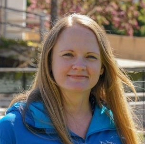
Sarah Johnson-Schlueter
Compliance Manager,
College of Agricultural & Life Sciences, Research DivisionSarah began working at UW-Madison in 2008 in the Research Animal Resources and Compliance (RARC) unit. She worked for 13 years in animal care and compliance before moving into her current role as compliance manger in CALS, where she has developed her knowledge and skills beyond animals and into areas such as sponsored project compliance and conflict of interest management.
-
Change Management: Big ideas don’t have to equal big problems!
Landmark (3rd Floor)
Slides
- Description
- The only thing constant in Research Administration and Management is CHANGE! Sponsors may change regulatory requirements, departments may experience high staff turnover, or institutions may change systems or something in between. This session will provide an overview of the change management framework that research administrative leaders can use to help their institutions, departments or teams navigate through changes across policy, process, systems, and staff changes to help reduce the strain and stress that change can present. Taking change management strategies back to your institution can help lead the transformation in a more “change agile” manner. Through case studies and change management strategies, you will explore practical ways to implement change.
- Presented By
-
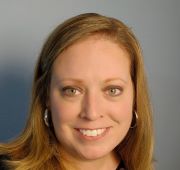
Calleen Roper
MPA, CRA, Associate Director for Research,
Department of MedicineCalleen joined the Department of Medicine in January 2021 as the Associate Director for Research. She oversees DOM’s Office of Research Services, which comprises pre-award, post-award, clinical trials, compliance, and research analytics. She works closely with faculty and project managers within DOM's 11 divisions and multiple affiliated research centers. Calleen is a Certified Research Administrator and has a Master of Public Administration from Florida State University.

Sandy Fowler
Assistant Dean of Research, Research Division,
College of Agricultural and Life SciencesSandy has been with the University since 1997 and her career with research administration started in November of 1999 when she was a Program Assistant with the Department of Forest Ecology and Management. She was managing grants and did not know it. Her time in the department prepared her for a move in 2006 to the College of Agricultural and Life Sciences (CALS) Research Division where she served as the lone post-award accountant until 2010. Due to college administrative restructuring, her position was moved to the CALS Business Services Office. It was a phenomenal move because it allowed Sandy to teach others and share her knowledge about grants and why it was important to know federal and sponsor terms and conditions when applying costs to sponsored funding. Nine years later Sandy became the Director of Business Services and served in the role for a little over 4 years. In late March Sandy returned to the CALS Research Division as Assistant Dean and is excited to be 100% research administration again.
-
Clinical Trials Post-Award Management Using Smartsheet
Agriculture (3rd Floor)
- Description
-
Clinical Trials post-award management involves a unique set of issues and challenges. The revenue cycle of clinical trials differs from grants, and account management tends to happen at the department level rather than at RSP.
The Carbone Cancer Center Clinical Research Finance Office (CRFO) uses Smartsheet (a cloud-based, completely customizable system administered by DoIT) to create financial data, merge data from different sources, and create reports and dashboards to visualize and manage their portfolio of ~200 active clinical trial accounts.
Join us for an overview of clinical trials finance and Smartsheet, as well as a demo and highlights of the Smartsheet system developed by the CRFO!
- Presented By
-
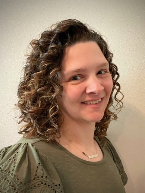
Jenny Dawson-Tibbits
Jenny Dawson-Tibbits has been with the UW Carbone Cancer Center's Clinical Research Finance Office for almost 8 years (6 as the team manager). She is passionate about cancer research and clinical research finance, as well as a Smartsheet enthusiast.
-
A Quick Guide to Successfully Navigating Federal Public Access Policy
Traditions (2nd Floor)
- Description
- Public access to research data and publications are now a standard part of many federal award compliance processes; however, these policies are continuing to evolve and can sometimes feel confusing to navigate. The language used in them, the skills they require, and the ways they ask researchers to talk about their outputs can feel new to many. This presentation will provide an overview of updates and current requirements in the public access policy landscape - including NIH’s new policy, provide an introduction to SciENcv and ORCID as part of new NSF requirements, and also cover key resources and local support available to the campus community in meeting federal public access requirements.
- Presented By
-
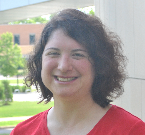
Trisha Adamus
Research Data Librarian at Ebling Library,
School of Medicine and Public HealthTrisha enjoys assisting researchers in managing their data, finding better and more efficient ways to maintain their research workflows, and understanding how their research contributes to the scholarly accomplishments of the University and how those contributions positively impact their individual fields of study.

Cameron Cook
Data & Digital Scholarship Manager and Chair of Research Data Services at the University of Wisconsin-Madison LibrariesCameron earned her MLIS from UW-Madison. She strives to take a people-centered approach to her work and aims to empower & be an advocate for her campus communities, a translator between stakeholders, an improver of systems, and a dreamer of opportunities.

Ryan Schryver
Compliance Lead for the UW-Madison Public Access ServiceRyan helps principal investigators and research administrators navigate federal public access to publications policy. Ryan’s focus on comprehensive client services, such as the PARTNERS compliance program, has made the PAS an important resource for ensuring award continuity.
-
Research Security
Northwoods A (3rd Floor)
Slides
- Description
-
A Research Security Program is required by the federal government to protect against foreign government interference and exploitation at research institutions receiving federal funds.
Research security is important to protect public investment in research, prevent the misuse of research data and advanced technology generated at universities by malign actors, and to protect the safety and security of employees and students traveling abroad. The federal government is focusing on areas critical to protecting the security of U.S. research such as the disclosure of conflicts of interest and commitment, including relationships or affiliations with foreign entities, and research support provided by those entities.
The Research Security Program will require changes to our research compliance systems including additional training for Principal Investigators and researchers and coordinated compliance measures with multiple areas of the UW. The Federal government will be finalizing the Research Security Program Standards sometime in 2024, so come hear about potential impacts to our campus.
- Presented By
-

John Jay Miller
Interim Director of the Research Security ProgramJohn started at UW-Madison in 2018 working in the Office of Strategic Consulting before moving to the Office of the Vice Chancellor for Research in 2022. John is responsible for the organization, management and supervision of the Research Security Program and Export Controls. John has 12 years of experience in higher education and research compliance and prior to working in higher education practiced law for 20 years.

Jennifer Rodis
Policy and Planning Analyst,
Office of Research and Sponsored ProgramsJennifer is a Policy & Planning Analyst in UW-Madison’s Office of Research and Sponsored Programs. She works on policy analysis, interpretation, development, and implementation related to research administration. She has been active with NCURA, FDP, and COGR, and currently serves on the FDP Expanded Clearinghouse Subcommittee and the COGR Contracts & Grants Administration Committee.
4:15 pm - onward
- Continued Conversations The SETT

